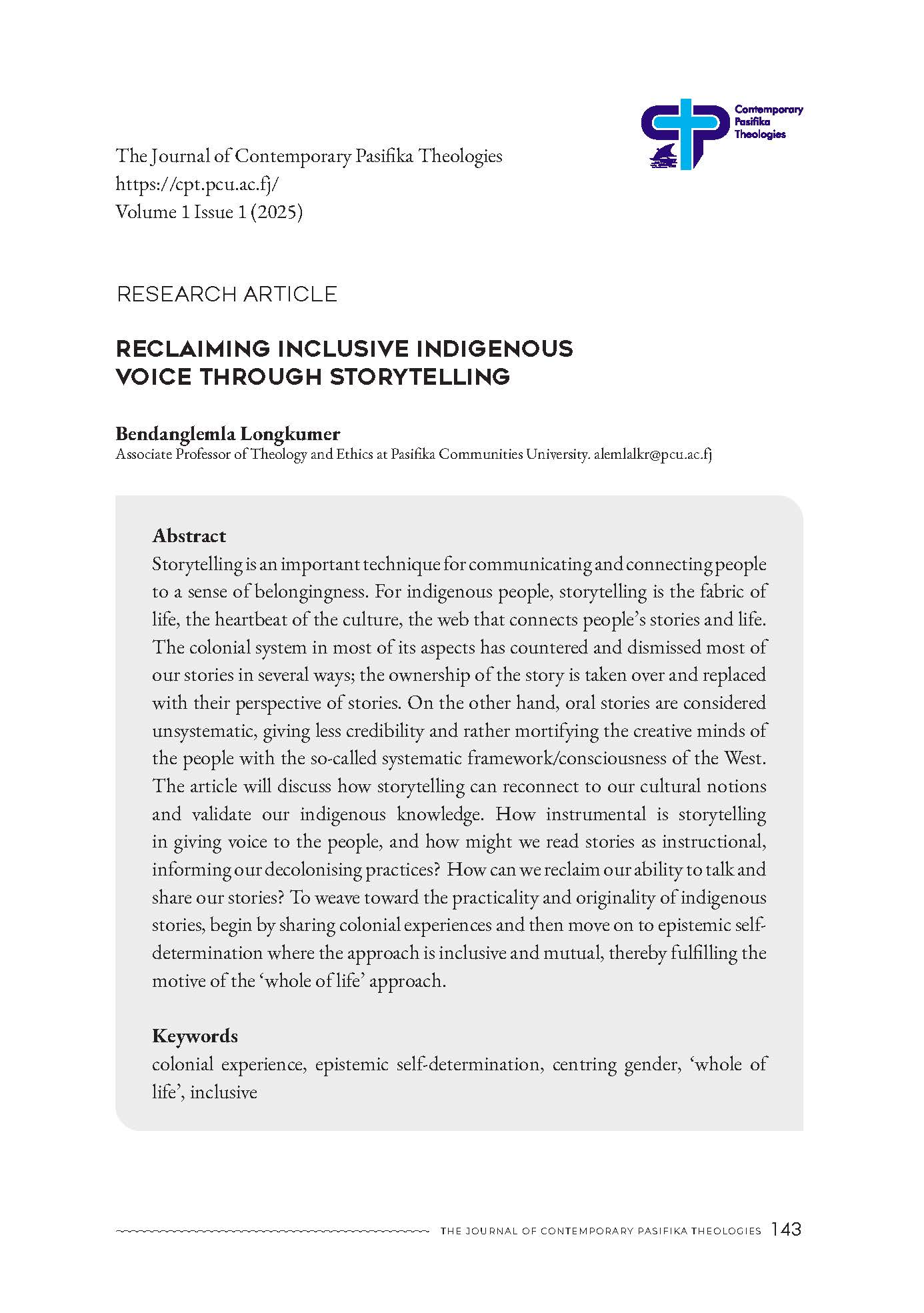Reclaiming Inclusive Indigenous Voice Through Storytelling
DOI:
https://doi.org/10.82025/cpt.v1i1.494Keywords:
colonial experience, epistemic self-determination, centring gender, ‘whole of life’, inclusiveAbstract
Storytelling is an important technique for communicating and connecting people to a sense of belongingness. For indigenous people, storytelling is the fabric of life, the heartbeat of the culture, the web that connects people’s stories and life. The colonial system in most of its aspects has countered and dismissed most of our stories in several ways; the ownership of the story is taken over and replaced with their perspective of stories. On the other hand, oral stories are considered unsystematic, giving less credibility and rather mortifying the creative minds of the people with the so-called systematic framework/consciousness of the West. The article will discuss how storytelling can reconnect to our cultural notions and validate our indigenous knowledge. How instrumental is storytelling in giving voice to the people, and how might we read stories as instructional, informing our decolonising practices? How can we reclaim our ability to talk and share our stories? To weave toward the practicality and originality of indigenous stories, begin by sharing colonial experiences and then move on to epistemic self-determination where the approach is inclusive and mutual, thereby fulfilling the motive of the ‘whole of life’ approach.

Downloads
Published
How to Cite
Issue
Section
License

This work is licensed under a Creative Commons Attribution-NonCommercial 4.0 International License.
